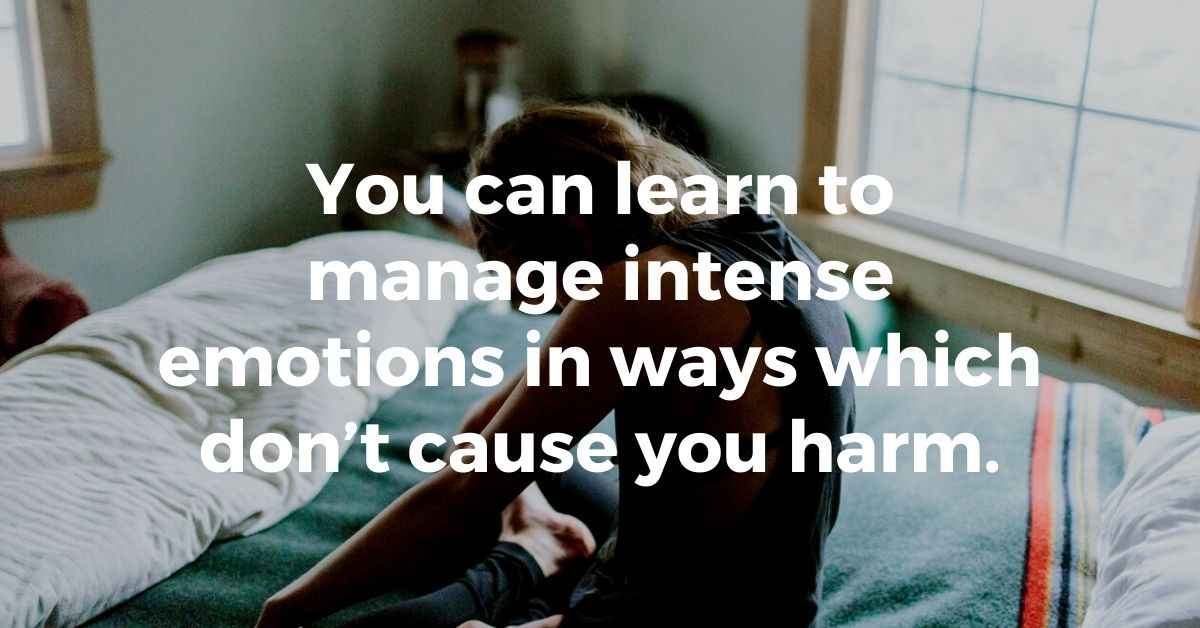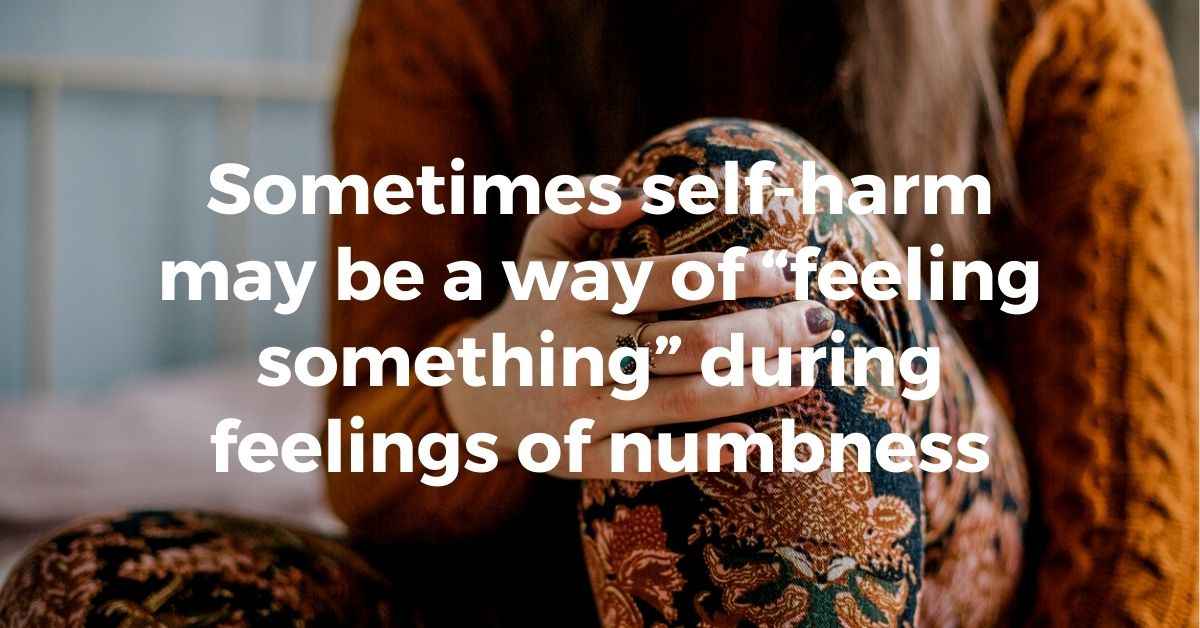Reviewed By Cara Swanston - Registered Member MBACP Adv. Dip.
Understanding Self-Harm
30 July 2021
If you’re self-harming, you don’t have to go through this alone, you can get the right support to improve your wellbeing.
If you’re self-harming, you don’t have to go through this alone, you can get the right support to improve your wellbeing. Read on to learn more about what self-harming is, who is at risk and how you can support yourself or someone you now who self-harms.
What is self-harm?
Self-harm is the act of a person intentionally damaging their body by behaviour which results in pain or injury and people who self-harm do so as a way of coping with difficult or distressing feelings. It can also be considered as high-risk behaviour, where a person may not be injured, but they choose to engage in activities which cause harm. Physical self-harm is often done on places of the body which aren’t easily seen by others, which makes it difficult for people to know when self-harm is occurring.

Is self-harm common?
Statistics can be difficult to collate as self-harm is often done secretively and in private, but research carried by the World Health Organisation found an estimated 62,000 adolescents died in 2016 as a result of self-harm. (SOURCE)
Studies have found that 6.4% of 16-74-year olds in England report as having self-harmed at some point in their lives. (SOURCE) A 2017 study found that annual rates of self-harm for girls aged 10 to 19 was at 37 per 10,000 girls and 12.3 per 10,000 boys of the same age.
In Northern Ireland between 2013 – 2018, the A&E departments across the country’s five health trusts reported:
28 cases of self-harm a day on average
Over 50,000 self-harm cases treated in five years
1,000 child cases annually (SOURCE)
Mood disorders – including depression or anxiety disorders, which contribute to the risk of self-harm – are 25% more common compared to other parts of the UK.

Why do people self-harm?
Difficult life experiences can cause someone to self-harm as a way of transforming emotional pain into physical pain or sometimes self-harm may be a way of “feeling something” during feelings of numbness.
Common instigators of self-harm include:
Financial stress or worries
Job loss
Stress or pressure at school or work
Discrimination
Social isolation or loneliness
Relationships ending
Illness or health concerns
Mental health issues, such as depression, anxiety or PTSD
When to seek immediate care
If you, or someone you know, is at risk of harm or you’re worried you can’t keep yourself or someone else safe until you get support, seek immediate help by calling 999 or going to A&E. |
| If you’re concerned about self-harm or have thoughts about self-harming, it’s important to get help: |
| Call your GP or out-of-hours GP for an emergency appointment |
| Call NHS 111 for advice |
| Contact your mental health crisis team, who are available in all trust areas. They can carry out a mental health assessment and provide short-term help until another service or support option is available. You can also ask your GP or your out-of-hours GP about the mental health crisis team in your area. |
Other Types of Support
One common type of support for self-harm is psychological therapy and you can explore options on our site. This can involve working through thoughts and feelings with a psychologist or other mental health professional in regular sessions over a set period of time. Psychological therapies like Cognitive Behavioural Therapy (CBT) can help teach strategies for recognising and coping with overwhelming or distressing thoughts and preventing further episodes of self-harm.

If you’re at risk of self-harm or you’re concerned about a friend or family member you can telephone one of the many helplines available. Lifeline or The Samaritans are available 24/7.
Talking to friends or family can be really beneficial on your journey to recovery. You can find tips on our site about how to start the conversation with someone you are worried about.
In this digital age online support groups or forums can be a really helpful tool, whether that be through a local or national organisation or through online community groups. Learning from others at different points of their journey, knowing you aren’t alone and having a safe place to share, discuss and ask questions can be very valuable.
Of course there are other self-help methods that may help you understand yourself better and find a greater sense of well-being overall.
Get Inspired Further
Vagus Nerve Daily Toning Activities
Try these Vagal Nerve toning activities that you can easily fit into your daily routine. Strengthening your vagal nerve has many benefits including better stress management, emotional regulation, and overall well-being
considering starting counselling
You may be considering counselling or therapy for the first time and we understand what a daunting process it can be making the first steps to reach out for help.
art therapy
Art therapy can help you in many ways. Art therapists, Nina & Erin, explain how.



